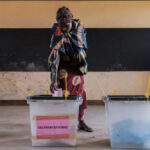Mobile network operators (MNO) Vodacom, MTN, Cell C, Telkom, and Rain faced tough questions from Members of Parliament (MPs) regarding the cost and expiration of data during a recent session with the Communications Committee. The MNOs were summoned to provide updates on their efforts to achieve universal connectivity in the country.
While the CEOs of the MNOs highlighted the progress made in expanding coverage, especially in the 5G network space, MPs expressed concerns about data pricing and the issue of data expiration. EFF MP Sinawo Thambo raised questions about the logic behind data and airtime expiry, suggesting that these policies may be designed to exploit consumers for profit. Thambo argued that since data and airtime are not perishable goods, their expiry policies are unjust and violate consumer rights.
MK party MP Colleen Makhubele went a step further, accusing the operators of behaving like loan sharks towards the poor by advancing data costs instead of reducing them. Political parties also criticized the high salaries of some MNO CEOs and called for more efforts to uplift poor and rural communities.
In response to the concerns raised, the Committee emphasized the importance of engaging further on the issue of prepaid data expiration. Chairperson Khusela Sangoni Diko highlighted the need for more discussions on this topic, especially considering that consumers purchase data that should not simply disappear based on MNO-determined timelines.
Additionally, the Committee urged MNOs to consider mobilizing resources to build the country’s own satellite for communication to enhance national security and technology sovereignty. MTN SA CEO Charles Molapisi mentioned the operator’s partnerships with non-terrestrial and satellite players like Starlink and expressed openness to competition in the market.
Vodacom CEO Sitholizwe Mdlalose emphasized the importance of a level playing field for all market participants, including new entrants like Starlink, in the telecommunications sector. The recent policy direction by Communications and Digital Technologies Minister Solly Malatsi paved the way for Starlink’s potential entry into the South African market.
Discussions on launching Starlink in South Africa had stalled earlier due to concerns raised by Elon Musk, who claimed that the BEE laws in the country prevented his company from operating there. However, South African officials refuted these claims, indicating that the regulatory environment aims to promote transformation and inclusion in the telecommunications sector.
Overall, the session highlighted the need for transparency, fair competition, and consumer protection in the telecommunications industry. The Committee plans to deliberate further on these issues while considering the budget of the Department of Communications and Digital Technologies in the coming weeks.








